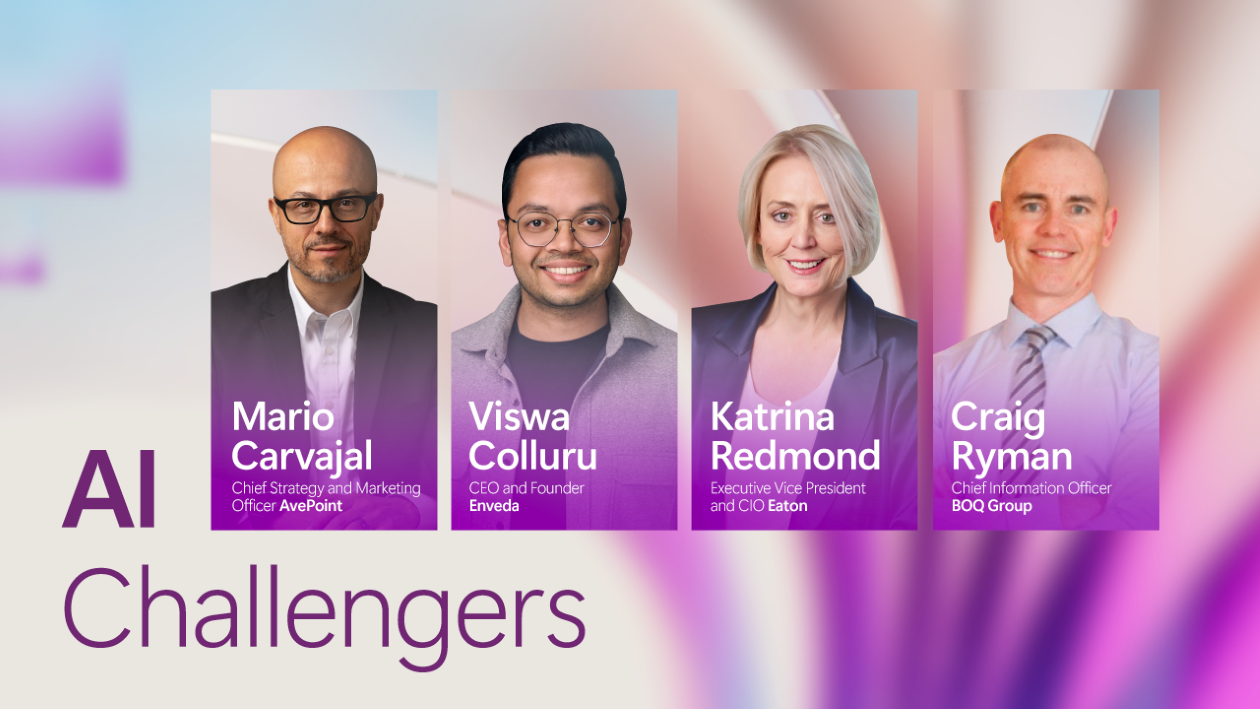Nearly 5,000 people gathered in Seattle, joined by another hundred thousand online attendees, to learn about the latest tech innovation, connect with experts, and expand their skills as we collectively enter the age of AI—the age of copilots—at Microsoft Ignite 2023.
If you missed the event, don’t worry—most sessions are available on-demand now, including all the amazing keynotes along with breakout sessions, discussion sessions, and more. One clear theme emerged across the event: the promise of AI is becoming real.
Over the past year, we’ve been living in the AI hype cycle. We’ve seen headlines, we’ve heard promises, and we’ve talked about potential. But at Microsoft Ignite, it was clear that potential isn’t coming a few years down the road, or even in a few months. It’s happening right now. One news roundup even called Microsoft’s vision for AI an “everyday reality.”
In November, we shared the results of an IDC study commissioned by Microsoft that explores how AI can drive economic impact for organizations across industries and around the world. At Microsoft Ignite, we shared even more detail from the study—and there are three key takeaways every business leader should know as this platform shift continues.
The business opportunity of AI
Explore the approaches and strategies enterprise organizations worldwide are using

AI is a strategic priority and a source of competitive advantage
The study found that AI adoption is both widespread and growing—71% of organizations are already using AI today, and 22% of those organizations who aren’t already using AI expect to do so in the next 12 months. And AI implementation is faster than you might think—the study found that 92% of AI deployments are taking 12 months or less, and 40% of organizations had implementation times of less than 6 months.
These results show that AI is becoming an increasingly integral part of business operations. Failing to invest in AI today means that organizations risk falling behind their competitors, and missing out on the benefits that AI can bring, such as increased efficiency, smarter decision-making, and enhanced customer experiences.
microsoft ai
At Microsoft Ignite, we saw firsthand how companies are using AI solutions such as Microsoft Copilot to transform how their employees work today. Take Bayer, for example: their employees are more productive, collaborative, and creative when they’re able to use Microsoft Copilot in their daily work. Bayer is already seeing more than 700 use cases for generative AI—it’s clear this is just the beginning.
United Kingdom retailer Marks & Spencer is using AI across many different lines of business, including customer engagement, and both the return on investment (ROI) and competitive differentiation they’re seeing is significant.
AI has been a game-changer for Marks & Spencer, delivering exceptional value across our enterprise and personalization initiatives. We have seen a tenfold return on our enterprise investments, generating seven figures in savings and efficiencies. On the personalization side, we have unlocked eight figures in incremental revenue thanks to AI-powered recommendations and offers, which has exceeded our expectations on the impact AI can have on our business.
Russell Johnson, Chief Data Scientist, Marks & Spencer
AI requires a clear vision, a robust data foundation, and a responsible approach
The study also explored the top use cases for AI, both today and in the future. Today, 41% of organizations are using AI to automate IT tasks—the top use case among respondents. However, in 24 months, a new set of use cases rises to the top: Copywriting, running simulations, and automating business processes and workflows. But to get there, organizations need to build a strong foundation.
That starts with a clear vision for success. This is critical to becoming an AI leader, which means an organization has an enterprise-wide AI strategy aligned to business goals, with business models that continually create business value.
IDC found that AI leaders represent 23% of respondents worldwide, and those organizations are seeing some tangible benefits, including better reduction in business risk, improvement in customer satisfaction, and higher revenue growth. AI leaders also have rules, policies, and processes in place to ensure alignment with Responsible AI principles.
Along with a clear vision and a responsible approach, AI leadership requires a robust data foundation—one of the factors IDC found was a challenge for many organizations. One telecommunications company based in Asia said, “The biggest challenge was getting hands on the right data from trusted sources. The data ecosystem itself is one of our biggest challenges.”
AI is only as good as your data—so you need an approach to your data platform that sets you up for success.
AI skills are in high demand as companies chart their path forward
As with any technology breakthrough, organizations are looking for experts to help guide and shape their path forward. But the generational platform shift of AI has been incredibly fast—after all, it’s only been one year since ChatGPT burst onto the scene. So it’s no surprise that finding skilled talent who can help deploy and manage next-generation AI solutions is cited most often as a barrier to AI success.
Along with factors like cost, concerns about data or intellectual property (IP) loss, and a strong data foundation, 52% of leaders cited a lack of skilled workers as one of the top challenges their organizations are experiencing when implementing AI technology.
Helping demystify next-generation AI—whether you’re looking for the basics, starting your learning journey, or digging into advanced AI scenarios in a technical breakout session at Microsoft Ignite—is one way Microsoft is helping power this global AI transformation.
The business case for investing in AI today
Throughout Microsoft Ignite and nearly every day since, AI is grabbing headlines and driving the global conversation. But as Satya said in his opening keynote, “all of this innovation will only be useful if it’s empowering all of us in our careers, in our communities, in our countries.”
How we apply AI innovation to solve real business challenges and seize new opportunities is what will change the world—and organizations across industries and around the world are already getting started today.
Explore top use cases for AI across industries in “AI Use Cases for Business Leaders: Realize Value with AI,” and catch up on all the announcements from Microsoft Ignite 2023 by reading the announcement blogs.
SOURCE: IDC InfoBrief, sponsored by Microsoft, The Business Opportunity of AI, IDC #US51364223, November 2023.




